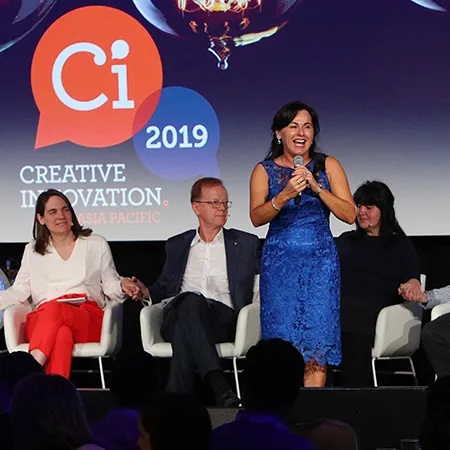All the lonely people, where do they all come from?
All the lonely people, where do they all belong?
The life and death of Eleanor Rigby, in the bleak Beatles song, reminds us that loneliness kills. Recent studies conclude loneliness and social isolation are the next big public health issue, on par with obesity, domestic violence and substance abuse.
At some stage of our lives, loneliness affects almost all of us. For many, it is a core factor in mental and physical health problems, and economic disadvantage. A 2012 study showed that in 2001-09, almost one in three Australians experienced loneliness. The study concluded loneliness is an increasing trend and emerging factors, from social media use to single person dwellings, feed this trend.
Overseas research concluded in 2010 that lacking social connections is as damaging to our health as smoking 15 cigarettes a day, and that loneliness is potentially twice as bad for older people’s health as obesity and almost as great a cause of death as poverty. On top of this, UK studies have found loneliness to be an even greater concern among young people than the elderly.
As well as being health and life threatening for individuals, loneliness particularly harms our communities when people feel they have little importance or value in other people’s lives. Having an ageing population, when many older people outlive their partners, loved ones and friends, we should aim to reduce social isolation before it is too late.
Whether we like it or not, we are all part of the global epidemic of our times -– loneliness.
We are social animals. However, social media and technology have made it easier to avoid forming substantive real-life relationships. As a community we are more impatient, stressed, anxious and depressed as we race from one thing to the next. Some people can live out their lives not stirring from their bedroom, if they have a laptop computer and a mobile phone.
As a community we are more impatient, stressed, anxious and depressed as we race from one thing to the next. This lifestyle disproportionately confronts people from cultural minority groups and those facing disadvantage including asylum seekers, migrants, people with disabilities and serious illnesses, those facing discrimination, racism, unemployment and isolation. It has created a significant divide that we need to bridge.
It is no wonder people are struggling to fit in, and the problem’s not going away. Exponential technological acceleration and globalisation is unleashing a wave of economic and social change on an unprecedented scale.
Australian and international research suggests between 40 and 60 percent of current middle-class jobs won’t exist in 10 years’ time due to robotics, artificial intelligence and other new technologies. That’s a lot of people potentially disconnected from society, and vulnerable to loneliness and isolation.
While many people will gain from such transformational change, there is a real risk that more people in our society will become even more socially isolated because their jobs become redundant or they can’t keep up with the pace of change.
This is a key reason why Prime Minister Malcolm Turnbull’s innovation mantra has so far failed to engage us. There is an all too pervasive sense it is becoming harder to find your place in the world or get ahead.
Compounding this, despite various attempts by governments and community organisations, the dominant Australian and global social welfare and engagement groups group and supports people from similar backgrounds or disadvantage.
Although this provides for focused attention and is comfortable for participants, it also puts individuals in silos, reinforces segregation, entrenches labels, creates a dependency mentality, and ultimately traps individuals within their existing network. Once so trapped, it’s hard to break out.
This top-down social welfare approach has been unsuccessful to date. Given the continued increase of disadvantage (Australia’s welfare is currently reported at being more than $150 billion per annum, up from $119 billion last year, and more than one in four families received a government handout), we need to find a better model for supporting and, in fact, ending disadvantage and isolation, especially in our advanced country.
Emerging evidence and research shows that complex social issues can only be tackled successfully at a local level with whole-of-community involvement. And prevention and early intervention are the key. If we want to create cohesive and inclusive communities where every voice matters, then we all need to share in finding the sustainable solutions to our social challenges.
Together we need to find some ‘uber-innovative’ approaches and policy initiatives to redesign our social welfare ecosystem and start solving these social problems now. All of us need to be part of building tolerant, harmonious, inclusive, resilient and supportive neighbourhoods and communities that bring people together through their common interests, not differences.
Whatever happened to being nice to each other and all of us keeping an eye out for our neighbours?
Loneliness is far more than a social misfortune. It is a significant problem that leads to a vast amount of human suffering and unfulfilled human potential. We are all part of the solution.
We don’t want to become a nation of Eleanor Rigbys. We should look to the positive message of another Beatles song: we all can benefit from ‘A Little Help From My Friends’.
_______________________________________________________________
Tania de Jong AM is an acclaimed Australian soprano, award-winning social entrepreneur, creative innovation catalyst, global speaker and spiritual journeywoman. She is the Founder of Creative Universe, Creativity Australia, Creative Innovation Global, Dimension5 co-working hub, MTA Entertainment & Events, Pot-Pourri and The Song Room and works with diverse communities through Creativity Australia’s With One Voice choir social inclusion programs and the global community wellbeing video challenge Sing for Good. She works across the public, private, creative and community sectors. Tania speaks and sings around the world as a soloist and with her group Pot-Pourri releasing 7 CDs. She is Founder and Executive Producer of award-winning future-shaping events series, Creative Innovation Global. Creative Innovation 2016 will take place 7-9 November in Melbourne. Tania’s TED Talk How Singing Together Changes The Brain has sparked international interest. Tania recently released her solo CD Heaven on Earth.Tania’s mission is to change the world, one voice at a time!
Twitter: @TaniadeJong
www.creativityaustralia.org.au
www.taniadejong.com
www.creativeuniverse.com.au
www.ci2016.com.au





